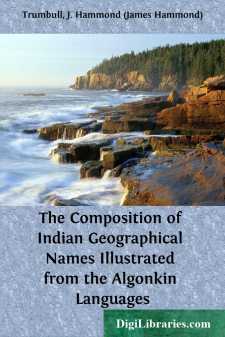Categories
- Antiques & Collectibles 13
- Architecture 36
- Art 48
- Bibles 22
- Biography & Autobiography 813
- Body, Mind & Spirit 142
- Business & Economics 28
- Children's Books 14
- Children's Fiction 11
- Computers 4
- Cooking 94
- Crafts & Hobbies 4
- Drama 346
- Education 46
- Family & Relationships 57
- Fiction 11829
- Games 19
- Gardening 17
- Health & Fitness 34
- History 1377
- House & Home 1
- Humor 147
- Juvenile Fiction 1873
- Juvenile Nonfiction 202
- Language Arts & Disciplines 88
- Law 16
- Literary Collections 686
- Literary Criticism 179
- Mathematics 13
- Medical 41
- Music 40
- Nature 179
- Non-Classifiable 1768
- Performing Arts 7
- Periodicals 1453
- Philosophy 64
- Photography 2
- Poetry 896
- Political Science 203
- Psychology 42
- Reference 154
- Religion 513
- Science 126
- Self-Help 84
- Social Science 81
- Sports & Recreation 34
- Study Aids 3
- Technology & Engineering 59
- Transportation 23
- Travel 463
- True Crime 29
The Composition of Indian Geographical Names Illustrated from the Algonkin Languages
Categories:
Description:
Excerpt
INDIAN GEOGRAPHICAL NAMES.
A proper name has been defined to be "a mere mark put upon an individual, and of which it is the characteristic property to be destitute of meaning." If we accept this definition, it follows that there are no proper names in the aboriginal languages of America. Every Indian synthesis—names of persons and places not excepted—must "preserve the consciousness of its roots," and must not only have a meaning but be so framed as to convey that meaning with precision, to all who speak the language to which it belongs. Whenever, by phonetic corruption or by change of circumstance, it loses its self-interpreting or self-defining power, it must be discarded from the language. "It requires tradition, society, and literature to maintain forms which can no longer be analyzed at once." In our own language, such forms may hold their places by prescriptive right or force of custom, and names absolutely unmeaning, or applied without regard to their original meaning, are accepted by common consent as the distinguishing marks of persons and places. We call a man William or Charles, Jones or Brown,—or a town, New Lebanon, Cincinnati, Baton Rouge, or Big Bethel—just as we put a number on a policeman's badge or on a post-office box, or a trademark on an article of merchandise; and the number and the mark are as truly and in nearly the same sense proper names as the others are.
Not that personal or proper names, in any language, were originally mere arbitrary sounds, devoid of meaning. The first James or the first Brown could, doubtless, have given as good a reason for his name as the first Abraham. But changes of language and lapse of time made the names independent of the reasons, and took from them all their significance. Patrick is not now, eo nomine, a 'patrician;' Bridget is not necessarily 'strong' or 'bright;' and in the name of Mary, hallowed by its associations, only the etymologist can detect the primitive 'bitterness.' Boston is no longer 'St. Botolph's Town;' there is no 'Castle of the inhabitants of Hwiccia' (Hwic-wara-ceaster) to be seen at Worcester; and Hartford is neither 'the ford of harts,' (which the city seal has made it,) nor 'the red ford,' which its name once indicated.
In the same way, many Indian geographical names, after their adoption by Anglo-American colonists, became unmeaning sounds. Their original character was lost by their transfer to a foreign tongue. Nearly all have suffered some mutilation or change of form. In many instances, hardly a trace of true original can be detected in the modern name. Some have been separated from the localities to which they belonged, and assigned to others to which they are etymologically inappropriate. A mountain receives the name of a river; a bay, that of a cape or a peninsula; a tract of land, that of a rock or a waterfall. And so 'Massachusetts' and 'Connecticut' and 'Narragansett' have come to be proper names, as truly as 'Boston' and 'Hartford' are in their cis-Atlantic appropriation....



